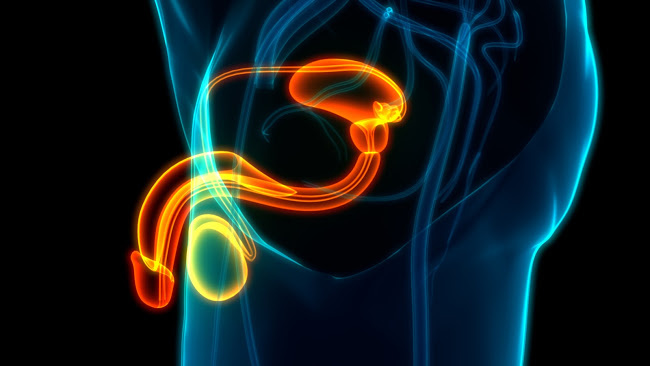
How Might Sexual Activity Change After a Hysterectomy?

A hysterectomy is a surgical procedure that removes most or all of the uterus, and sometimes the fallopian tubes and ovaries as well. It may be done for a variety of reasons, including severe endometriosis, adenomyosis, pelvic pain, and cancer. The average age of women that receive a hysterectomy is around 50, and depending on the type of surgery, menopause may start immediately. Alternatively, women who get a hysterectomy may already be going through menopause. Both cases can affect overall sexual functioning, whether in positive or negative ways.
Most likely, as many studies have pointed out, a woman’s sexual functioning will not change at all after a hysterectomy. However, this depends on a variety of factors, such as age, sexual functioning prior to surgery, and post-operative complications. In a survey of partners of women who had undergone a hysterectomy, both the women and their partners reported no change or negative impact on sexual satisfaction following the procedure. Additionally, a 2023 study of sexual functioning and hysterectomies notes that regardless of the type of hysterectomy, sexual functioning is unlikely to be impacted.
If sexual pain and/or dysfunction prior to a hysterectomy was high, women’s sexual functioning may improve and sexual activity may increase post-operation, according to one 2025 study looking into sexual and pelvic floor function. Additionally, pelvic floor functioning appears to improve in the 5 years following surgery. Another study following post-operative sexual functioning notes a reduction in urinary, bladder, and pelvic floor complications three years post-operation. Pelvic floor dysfunctions can lead to a lack of sexual activity due to pain or sexual distress caused by pelvic pain. Reducing pelvic floor problems can then prompt a positive change in sexual functioning.
Unfortunately, there are a variety of post-operative complications that could affect sexual functioning negatively. In the aforementioned study of patients three years post-hysterectomy, researchers noted that pelvic organ prolapse can be a complication of the surgery, as well as other pelvic floor dysfunctions. The 2023 sexual functioning study notes that there may be complications such as vaginal nerve or tissue damage, or worsened dyspareunia, depending on how much of the reproductive organs are removed. Any of these complications may cause sexual distress or worsened sexual functioning. However, they also note that surgeons are consistently improving upon hysterectomy practices to reduce the chances of any pain in these areas following surgery.
Additionally, a hysterectomy may set menopause in motion if the ovaries are removed, as they produce sex steroids such as estrogen (which protects vaginal tissue integrity) and androgen (which assists in sexual arousal). Across all studies mentioned, women who were pre-menopausal prior to surgery often reported worsened sexual functioning post-operation if their ovaries were removed. Due to the average age of women who undergo hysterectomies, proximity to menopause may have more of an influence on sexual functioning following surgery than anticipated. This may lead to reductions in sexual arousal, desire, lubrication, and overall satisfaction – symptoms commonly associated with menopause.
Conclusion
Hysterectomies are generally safe and usually do not directly affect sexual activity. If there are any negative changes to sexual functioning following a hysterectomy, it’s been hypothesized in the medical community that this is most likely due to a woman entering menopause. This could either be age related or because the ovaries were removed during a hysterectomy. Regardless, always be sure to speak with a sexual health professional if you are experiencing distressing sexual dysfunction or concerning hormonal changes.
References:
- Dedden, S. J., Werner, M. A., Steinweg, J., Lissenberg-Witte, B. I., Huirne, J. A., Geomini, P. M., & Maas, J. W. (2023). Hysterectomy and sexual function: A systematic review and meta-analysis. The Journal of Sexual Medicine, 20(4), 447–466. https://doi.org/10.1093/jsxmed/qdac051
- Forsgren, C., & Johannesson, U. (2025). Sexual function and pelvic floor function five years after hysterectomy. Acta Obstetricia et Gynecologica Scandinavica, 104(5), 948–957. https://doi.org/10.1111/aogs.15069
- Johannesson, U., Amato, M., & Forsgren, C. (2023). Pelvic floor and sexual function 3 years after hysterectomy – a prospective cohort study. Acta Obstetricia et Gynecologica Scandinavica, 103(3), 580–589. https://doi.org/10.1111/aogs.14751
- LONNÉE‐HOFFMANN, R. A., SCHEI, B., & ERIKSSON, N. H. (2006). Sexual experience of partners after hysterectomy, comparing subtotal with total abdominal hysterectomy. Acta Obstetricia et Gynecologica Scandinavica, 85(11), 1389–1394. https://doi.org/10.1080/00016340600917316
- What is a hysterectomy?. Cleveland Clinic. (2024, May 31). https://my.clevelandclinic.org/health/procedures/hysterectomy




